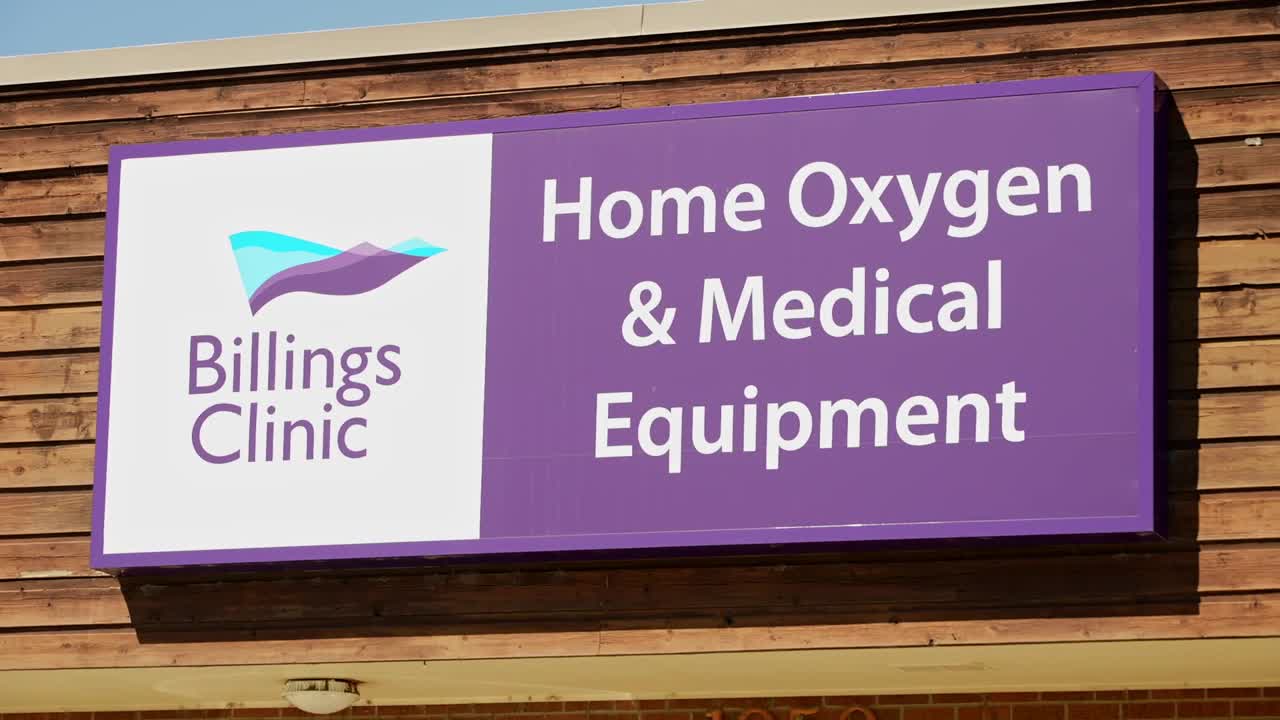JOLIET — Whether it's a CPAP machine or an oxygen tank, over 700 Billings Clinic patients use durable medical devices in their homes to survive. When disaster strikes, such as fires, floods, or power outages, Billings Clinic has several backup plans to stay prepared, something Joliet resident Harold Nelson has seen in the 12 years he's used their services.
At 85 years old, the last thing Nelson wants is to be in a nursing home.
“I'll die right here on this g—d—- chair before I'll go to the nursing home," said Nelson at his home in Joliet Wednesday.
With a diagnosis of emphysema, he needs help from an oxygen tank to breathe.
“This is number one," Nelson said as he pointed to his home oxygen machine.

Thanks to Billings Clinic and its Home Oxygen and Medical Equipment program, Nelson doesn't even have to leave his chair.
“They’ve kept me alive, let’s put it that way. I know that for a fact,” said Nelson.
"We provide oxygen, CPAP, BiPAP, ventilator, orthopedic supplies, wound care, ostomy, basically anything that would be needed for in-home care,” said the program's coordinator, Kelsey Berg.
Berg said 775 patients are currently renting an oxygen machine within their 100-mile service radius.
"We do about 800 deliveries a month. They're clipping off about 200 deliveries a piece a month. So it's really busy. In a year, we fill about 35,000 oxygen tanks," Berg said.
Montana's unpredictable weather has raised concerns about what could happen to many of these patients during prolonged power outages.

Miles City and Missoula have both experienced severe wind events this past month that cut the power for days. Wildfires pose additional risks.
"We always have excess oxygen in place in the home. So if the power fails, which happens a lot, it's Montana," said Berg. "A lot of people have portable oxygen machines that are battery powered, that can be charged in cars."
Billings Clinic fills its own tanks and is accessible to patients 24/7.
"We also have liquid oxygen that we can fill stationaries and liquid portable. And then we do work with general distributing. They do a good job for us in being our backup if something were to go wrong too," Berg added.
It's a backup for a worst-case scenario, protecting lives and preserving relationships that extend beyond what most realize.

"You become family, and just watching the progression of that, I can personally say that I've gone through things there that have hurt as bad as it would as if it was your brother or sister, so that's the hardest part," said Berg. "Harold is, that's why I called Harold. He's my right-hand guy."
"He’s my son," said Nelson regarding Berg. "I've seen so many changes in oxygen care since he took over the moment and managed my position. It's really made it way better for everybody. And I know even the people who work with him, work under him, and they'll tell you the same thing. So he's been my life savior, he really has."




